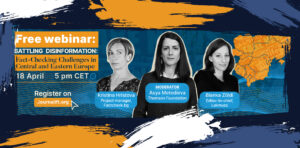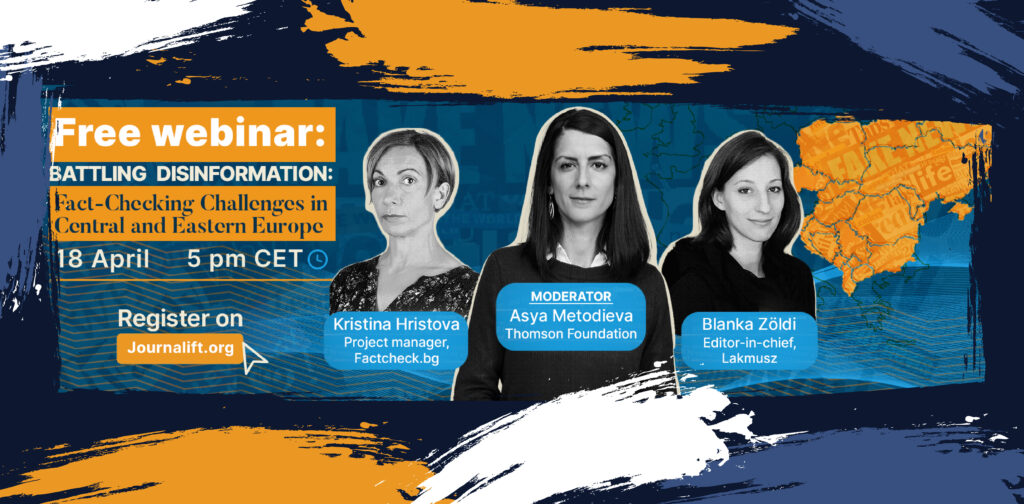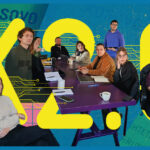The audience expects better and higher quality media content. They want the media to describe the background of the story and to cover the topics continuously and more thoroughly. In general, they don’t trust the media and consequently they are not satisfied with the content that they consume in the media on a daily basis, and therefore part of the audience simply avoids news.
Moreover, it can be concluded that the negative attitude towards politics and the political institutions is reflected in the attitude of the audience towards the media.
Citizens who do not trust politicians do not trust journalists either - which indicates that they are perceived by the public as being a part of the same media-political elite.
These are some findings of a large survey of public perception of the media and media content on a representative sample of 1009 respondents in Croatia, as a part of the project Journalism Research Lab (Innovative storytelling practices to engage new audiences - JOURLAB).
Project was conducted by the team of media professionals and scholars from the Faculty of Political Science, University of Zagreb. Among the researchers are professionals who are also the Thomson Foundation trainers (Tena Perišin as a leader of the project and Dejan Oblak and Petra Kovačević as the researchers in the team).
Survey results
Although the research is carried out in Croatia, in many aspects the results also reflect the public opinion in the other countries in the region. Speaking of trust in professions, journalists are somewhere in the middle of our ranking of the professions that we offer. To speak more precisely at the lower part of the ranking list. At the bottom – politicians!
When it comes to how Croatian citizens are keeping informed, results show that they are getting news via television, followed by internet portals, social media, radio, daily newspapers and magazines. However, when it comes to young people (18-22) and their news habits, their first choice for getting information are internet portals and social media. But when asked – which media they trust more – television and radio stand better. They also point out that they encounter fake news stories - or stories that they believe misrepresent reality - predominantly on social media and internet portals.
Moreover, the main reason why citizens avoid the news - either consciously or unconsciously - is because they feel that they are too negative and cause tension and conflict in their society, or they cover topics they personally find neither relevant nor interesting. Also, citizens expect the news media to report on topics that they personally find relatable and worthy.
Opinions on media coverage of COVID-19 crisis are divided. While one part of the respondents thinks the media exaggerated in describing the seriousness of the crisis and that contributed in creating confusion in the public, others think the media helped them better understand the crisis and provided them with information on how to behave in the COVID-19 crisis.
The results show quite a polarisation among respondents. The attitude towards the media and towards politics, shapes citizens' attitude towards pandemic.
Those who believe that COVID-19 is a threat and a danger, trust journalists and news media in general, have faith in political participation, have positive relation towards politics and want more economic and social protection from the state. On the other hand, people who believe that COVID-19 is a hoax are those who do not trust the news, do not have trust in journalists, are less informed, are prone to news avoidance, live in rural areas and are opposed to state interference in the economy.
Most of the findings can be educational for the media in the region. There are some recommendations for the media outlets – what they should do or change to be more interesting to the audience. The most respondents answer – provide more context to a story and focus on follow-ups. Although the young audiences want shorter and multimedia digital storytelling, new forms and use of digital tools, they also answer that they lack in-depth stories, background and follow up stories.
The media outlets should look for new audiences, especially young.
The copy paste journalism will not attract new audiences and will not regain the trust in the journalism profession. Also, that kind of job will not attract young people to choose journalism as a future profession.

What does it mean for the “Media for All” partners?
Concerning the media in the region and the media participating in the “Media for All” project, they can learn a lesson from this survey. Bosnia and Herzegovina, Serbia, Kosovo, North Macedonia, Montenegro, Albania, each country has its own challenges. In all of these countries, news media are focused on daily politics, hardly having time to spend on original stories. The local media should differ from the national – selecting the newsworthy content for their community.
When talking about in depth coverage and follow up stories, in case of the local media that is something in particular that should be taken care of. Of course, if the goal is to attract the young audiences, they should have a multimedia approach.
In order to find important stories local media should “listen more” to the needs of their communities. One of the easiest ways for the local media is to create questionnaires on their social media. This is one of the ways to get original content, and constructive stories. It doesn't mean avoiding reporting about problems, but it gives a chance to reporting about solutions of those problems.
There isn’t a recipe, but this could be the way to go. Not only could it bring new audiences, change their perception of journalistic work and journalists themselves, but news media could accomplish another important role – change the state of mind towards building a better, healthier community.


































